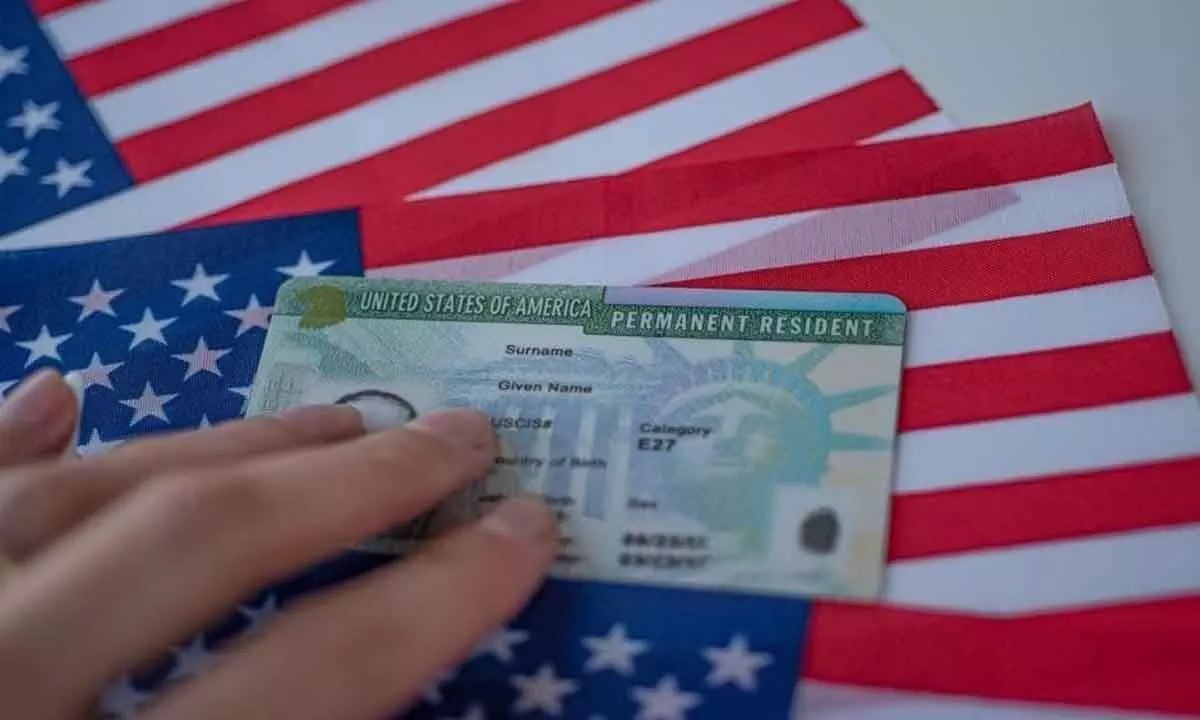Top US Congressmen introduce bill to reduce Green Card backlog

Indian Americans currently in decades-long wait would get benefitted
The bill strengthens the H-1B temporary visa programme and provides an option for individuals who have been waiting in the immigrant visa backlog for two years to file a green card application, although the application cannot be approved until a visa becomes available
Washington: Three influential Congressmen have introduced bipartisan legislation in the US House of Representatives to reduce the Green Card backlog and end country-based discrimination for employment-based visas, a bill if passed would benefit thousands of Indian Americans.
Three influential Congressmen who introduced the legislation include Indian Americans, Raja Krishnamoorthi and Pramila Jayapal. Congressman Rich McCormick is the third lawmaker to have joined the two Indian-Americans in introducing the bill on Monday. If passed and signed into law, it would help thousands of Indian Americans who are currently in decades-long wait for green cards or permanent residency.
HR 6542, the bipartisan Immigration Visa Efficiency and Security Act of 2023, would strengthen the US economy and boost its international competitiveness while reducing the Green Card backlog by allowing American employers to focus on hiring immigrants based on their merit, not their birthplace, a press statement said.
A Green Card, known officially as a Permanent Resident Card, is a document issued to immigrants to the US as evidence that the bearer has been granted the privilege of residing permanently. The bill would phase out the existing seven per cent per-country limit on employment-based immigrant visas while increasing the seven per-country limit on family-sponsored visas to 15 per cent, it said.
“As we work to build the economy of the future, we cannot allow high-skilled workers to languish in the Green Card backlog, left unable to fully establish themselves as Americans and contribute more fully to our nation,” Krishnamoorthi said. “I am proud to partner with my colleagues on our bipartisan legislation to end country-based discrimination for employment-based immigrant visas to reduce visa backlogs while strengthening our economy and our workforce,” he added.
The employment-based visa system provides permanent residence (or "green cards") to individuals whose work contributes to US economic growth and enhances our competitive advantage.
To qualify, a sponsoring employer generally must advertise and prove that they cannot find a qualified US worker to fill the position. Thus, although America’s employment-based visa system starts as “merit-based,” what happens next has nothing to do with merit or skills — visas are allocated based on the intended immigrant’s country of birth, the statement said.
Approximately 95 per cent of employment-based immigrants currently live and work in the United States on temporary visas while waiting for a visa to become available. Some of these individuals remain in temporary status for many years, if not decades, because of the caps applied to their country of nationality, it read.
The statement said the new, phased-in system, established in the bipartisan EAGLE Act, would help ease the backlog for those who wait the longest. Like the Fairness for High-Skilled Immigrants Act that passed the House in July 2019, the bill phases out the seven per cent per-country cap for employment-based immigrant visas; and raises the seven per cent per-country limit on family-sponsored visas to 15 per cent.
Like the version of the Fairness for High-Skilled Immigrants Act that passed the Senate in December 2020, the bill includes a longer nine-year transition period to ensure that no countries are excluded from receiving visas while the per-country caps are phased out, it said.














